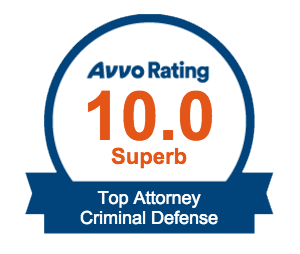If you are facing DUI charges, and your blood alcohol content was recorded at 0.15% or more, you may face DUI enhancements under California law. With DUI enhancement, the court will impose increased penalties on you. The DUI Defense Attorney in Van Nuys can help you fight DUI charges so call today.
Overview of VC 23578- DUI Over 0.15%
The California Legislature categorizes DUI defenses depending on the level of intoxication and the likelihood of a driver to cause an accident. The higher your blood alcohol concentration (BAC), the higher your chance of causing accidents and injuries. Under California law, it is illegal to operate a vehicle with a blood alcohol concentration of 0.08% or more. Since 2006, California adopted sentencing enhancements for drivers who operate vehicles with a blood alcohol concentration of 0.15% or more. Recording a very high BAC is an aggravating factor that leads to enhanced penalties. The California Vehicle Code 23578 VC outlines the sentencing enhancements for BAC of 0.15% or more.
When a prosecutor is filing charges against you for intoxicated driving, he/she starts by gathering evidence about the case. If you recorded a blood alcohol concentration of 0.15% or more, the prosecutor would use this fact in the case against you. They will note on your record that you have a DUI aggravating factor. BAC of 0.15% is very high because it is almost double the legal limit. If your blood alcohol concentration is very high, you are a hazard to yourself and also to other road users. Being under the influence results in impaired driving. An intoxicated driver cannot be able to make decisions that a sober and reasonable person would. If you record a much higher BAC of 0.20% or more, you will face additional charges under California Vehicle Code 23538 VC (b) (2).
To determine your BAC at the time of the arrest, you may undergo a breath test or a blood test. If you choose to undergo a breath test, the arresting officer will immediately know your BAC results and note the same on your records. If you opt to undergo a blood test, it may take several days for your BAC results to be ready. Upon receiving your blood sample, the officer will send the sample to the crime laboratory for analysis. The prosecutor will have to gather evidence, including your BAC results to when crafting DUI charges against you.
The amount of alcohol that leads to impairment may depend on several factors. The factors include weight, gender, metabolism, and age. However, irrespective of your physical characteristics, the more the alcohol you consume, the higher the chances of causing an accident. For most people, reaching a BAC of .08% or more impairs their ability to operate a vehicle safely. The likelihood to cause an accident could only go higher with a BAC of 0.15% or more. With this level of BAC, your ability to pay attention, process information, and make a judgment is impaired. Intoxication also affects your reaction time, and you may not be able to respond to an emergency promptly.
A research conducted by NHTSA revealed that 70% of deaths resulting from alcohol impairment involve a driver with a BAC of 0.15% or more. It is for this reason that the state of California has come up with laws that impose more substantial penalties on drivers with a BAC of 0.15% or more.
Consequences for DUI Over 0.15% Charges
Under California law, driving with a BAC of 0.08% or more is a serious offense with detrimental outcomes. Having a BAC of 0.15% or more is an aggravating factor that will lead to enhanced penalties. Some of the consequences may include:
Fines and Jail time
For a first time or second time DUI offense, the court may recommend a fine ranging from $390 to $1000 depending on the extent of the offense. You may pay fines of up to $1,800 if you commit a third time DUI violation. The total fines charged will depend on various factors, including the prosecutor's charges/evidence against you. The defense presented by your DUI attorney will also go a long way in determining the fines payable for your DUI case.
For a first time DUI offense, you may serve jail time of up to six months. For a second or third DUI offense, you may serve jail time of one year.
DUI School
California law takes high blood alcohol concentration (BAC) results very seriously. With a BAC of 0.15% and above, you have to attend mandatory DUI School. For an offense under California Vehicle Code Section 23578 VC, the applicable minimum period of DUI School is six months (AB762 class). The court may also require you to attend DUI School for nine months (AB1353 class). Often, the court may recommend DUI School instead of jail time. While attending DUI School, you may face additional probation terms. The conditions may include community service or any other work that the court may deem necessary. You may also have to undertake programs like HAM (Hospital and Morgue) or Victim Impact Panel.
If you are a first time offender, you may attend a three-month first-time DUI program. This is as long as your blood alcohol concentration of below 0.20%. The three-month DUI program also goes by the name AB 541 class. You may attend the sessions for a DUI and a DUID conviction. A three-month DUI program consists of thirty hours of instruction.
The exact number of classes and programs that a defendant has to attend may vary depending on the provider of the alcohol education program. If the court recommends DUI school sessions, it is a mandatory requirement to attend and complete the alcohol training program. During your California DUI sentencing, the judge may order you to produce proof of enrollment in a DUI school within 21 days from the date of sentencing. However, you do not have to worry because most providers of alcohol education will send a proof of enrollment to the DMV and the court immediately you enroll.
In most cases, the judge will require you to complete an alcohol education program within a stipulated period. Therefore, they may request a certificate of completion once you are through with the program. The alcohol education provider sends a proof of completion to the DMV and the court immediately you are through with the alcohol education. If you fail to honor and attend the necessary lessons, you cannot get a completion certificate. If you miss many classes, you may drop out of DUI School. The court may then recommend jail time instead of DUI School.
The law requires you to remain sober as you continue with DUI School. You may be subject to unexpected Breathalyzer or chemical testing. If it is evident that you are intoxicated, you may be expelled from DUI School and go to jail instead.
License Suspension
A DUI arrest for a BAC of 0.15% or more will lead to an automatic suspension of your driver's license by the Department of Motor Vehicles. You will not get a more extended license suspension period for recording a high BAC. However, it is essential to note that the DMV cannot restore your driver's license until you are through with DUI School (Alcohol Education Program). Therefore, if the court requires you to attend a nine-month DUI school, you will operate with a suspended or a restricted driver's license for nine months.
Can you operate a vehicle if your license is suspended? You should not attempt to operate your vehicle on a suspended license as this will lead to additional charges. Under the California Vehicle Code 14601 VC, it is a misdemeanor offense to drive a car while you are aware that your driver's license is suspended. Penalties for driving on a suspended license include county jail sentences and substantial fines. However, the consequences for VC 14601 driving on a suspended license will depend on why the DMV suspended your driving license in the first place.
You can only escape the additional penalties of driving on a suspended license if you assert that you were not aware that your license was suspended. You may also avoid additional charges if your insurance had been suspended on wrongful grounds. You may also evade charges if you had the right to drive on a restricted license.
Ignition Interlock Device
The court may order you to install an ignition interlock device for operating a vehicle with a blood alcohol content of 0.15% or more. This is a breath test device fitted on the dashboard of your car. With this device, you cannot operate your car unless you submit an alcohol-free breath sample. If the court orders the installation of IID, you must have a device installed by a professional to ensure it is fully functional. In addition, you must install the gadget on all your vehicles if you have more than one car.
The law requires you to blow into the IID and provide an alcohol-free breath sample before you start your vehicle. If you fail to submit a breath sample, your vehicle cannot start. The IID device may need you to provide several samples in the course of driving. For instance, the gadget may request a sample 5-15 minutes after you start the car. After that, the IID device may require you to submit a sample every 45 minutes of driving. The device gives you a limited time to submit a sample, usually six minutes. Six minutes are adequate for you to pull over and provide a sample.
If you fail a test, the IID device will not stop your vehicle. However, the IID will record fail in your record, and the record will later be used against you in court. It is a crime to request another person to submit a breath sample on your behalf. The IID has in place some measures to curb the submission of a breath sample by another person. The device has a very short cord, and a person on the passenger's seat cannot reach it. The device also requires a specific breath pattern.
Alternative Sentencing
If your attorney can challenge the prosecutor's evidence in court, the judge may recommend alternative sentencing instead of jail time. The alternative sentence may comprise of a requirement to live in a sober environment or under house arrest. You may also have to spend a specific number of hours doing community service.
Other Causes of Enhanced Penalties
Other than having a high BAC of 0.15% and above, there are some additional causes of enhanced DUI penalties. The enhancements may vary from one jurisdiction to the other. Some of the leading causes of DUI penalties enhancements include:
Prior DUI Convictions
If you have a prior DUI offense on your record within the past ten years, you may face enhanced penalties for a first or subsequent DUI offense. For a violation with a prior, the penalties may include mandatory jail time, license suspension, and DUI School. If you commit a DUI offense with two priors, the penalties will be more severe. Three priors within ten years may lead to felony charges. Under California law, felony charges are punishable by imprisonment in a California State Prison.
Refusing to Undertake a DUI Test
You may face enhanced penalties under California law if you refuse to undergo a chemical DUI test or breath test to measure the level of intoxication. Declining to submit to a chemical test may lead to enhanced jail time.
Reckless Driving
You may face enhanced penalties if you get involved in reckless driving while your BAC is above 0.08%. Reckless driving may include speeding while you are under the influence of alcohol. In California, for instance, you may face enhanced penalties if you operate your vehicle at 20mph above the set speed limit on a surface street. You may also face an enhanced sentence if you drive your car at more than 30mph over the set speed limit on a freeway.
Endangering a Child
If you operate your vehicle under the influence and you are in the company of a minor below the age of 14 years, you may face enhanced penalties. The enhanced penalties are provided for under the California DUI law or the California Child endangerment law for exposing a minor to risks.
DUI Causing Injuries
You may face enhanced penalties if you operate a vehicle under the influence of alcohol, and you cause an accident leading to the injury of another person. The presence of property damage may also trigger a more severe judgment. Where personal harm to victims is substantial, the court may elevate your offense to felony status.
Common Defenses to a BAC of .15% Charges
If you are facing charges for operating a vehicle with a high blood alcohol concentration of 0.15% or more, your attorney can help you come up with various defense strategies. With proper defense, you can get a plea bargain, and the court reduces your charges. You may also challenge the prosecutor's evidence to prove that you were not under the influence. If you successfully challenge the prosecutor's testimony, the court may reduce your charges or dismiss the charges altogether. Some of the common defenses include:
Challenging Field Sobriety Tests and DUI Tests Results
While determining intoxication, law enforcement officers may employ several methods. For instance, if an officer stops your vehicle and suspects that you are under the influence, they may require you to undertake several field sobriety tests. The tests are aimed at testing your concentration and ability to concentrate and follow instructions. If you are under the influence, you may be unable to pass the sobriety tests. The officer may also look for signs of intoxication, including watery eyes, bloodshot eyes, and inability to concentrate.
You may assert that you were ill or suffering from fatigue at the time of taking the sobriety tests, and this affected your ability to concentrate. You may also affirm that the red or watery eyes were not due to intoxication but an illness.
You may also challenge the results of a breath test. Your attorney can question the credibility of the Breathalyzer results and especially if the attorney establishes that the Breathalyzer is not subjected to regular maintenance. The attorney may also challenge the BAC results if an unqualified person conducted the tests.
You may assert that the high BAC results are due to your intake of a high protein diet. You may also point out that before your BAC testing, you had used an alcoholic mouthwash as this may elevate the BAC levels. You may also assert that the testing officer did not follow the right procedure.
Police Brutality
If you suffered police brutality at the time of arrest, you could base your defense on this fact. Even if your BAC is 0.15% or more, you have a right to a lawful arrest process. For instance, during the arrest, the police should read out the Miranda rights to you. Besides, the police must have had probable cause to stop your vehicle in the first place. If the arresting officers did not follow the right procedure or if the officers were brutal towards you, your attorney may request for a suppression hearing. During this hearing, the attorney aims at nullifying the evidence against you. The attorney may also request the prosecutor to minimize or drop all the charges against you.
Contact a Van Nuys DUI Defense Attorney Near Me
If you are facing charges for DUI Over 0.15% (VC 23578) you need an attorney to defend you. The DUI Defense Attorney in Van Nuys is always ready to assist. Contact us at 818-253-1913 and speak to one of our attorneys today.
Here are other law firms I recommend outside of Van Nuys if you are arrested in Orange County or San Diego: San Diego DUI Lawyer and Orange County DUI Lawyer













